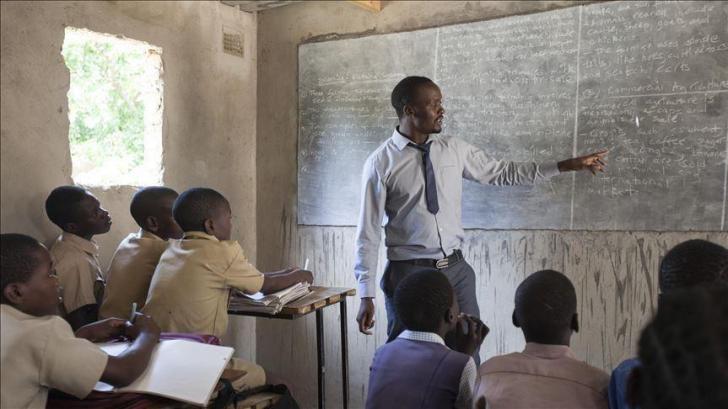News / National
Zimbabwe's teacher-to-pupil ratio climbs to 1:45
20 May 2025 at 11:54hrs |
0 Views

Zimbabwe's public education system is under severe strain following revelations that the average teacher-to-pupil ratio has ballooned to 1:45, far exceeding recommended standards, due to a government freeze on teacher recruitment.
Primary and Secondary Education Minister Torerai Moyo made the disclosure while addressing the Senate last week, sparking alarm among lawmakers and education stakeholders.
"The government is doing a lot to address the issue of the teacher-pupil ratio. At the moment, the ratio stands at 1:45, which I believe is too high," said Moyo. "We have requested Treasury to unfreeze 8,000 teaching posts, but we are still waiting for concurrence."
Moyo said the ministry was ready to embark on a nationwide recruitment drive once Treasury approval is secured, and promised that the exercise would be decentralised to ensure efficiency and equity.
Education experts and unions have long warned that ballooning classroom sizes are compromising the quality of teaching and learning in schools, especially in rural and high-density urban areas.
The minister provided context for the critical staffing shortage by explaining the standard ratios expected in different educational levels. "For Early Childhood Development (ECD), the recommended ratio is 1:20. For junior primary and lower secondary, it is 1:30, and for A-Level, 1:15," Moyo said.
While acknowledging the crisis, Moyo assured the Senate that vacancies arising from resignations, retirements, deaths, and transfers were being filled as they occur, though this is not enough to bridge the widening gap.
In a further blow to the sector, Moyo revealed that 49,555 learners dropped out of school in 2024 alone, a statistic attributed to worsening economic hardships and increasing poverty levels across the country.
The teacher shortage, combined with deteriorating school infrastructure and rising dropout rates, paints a bleak picture for Zimbabwe's education sector - once regarded as one of the best in Africa.
Calls are now growing for urgent government intervention to reverse the staffing freeze and invest more robustly in public education to protect the country's future human capital.
"The longer we delay this recruitment, the more damage we do to our children's education," said a senator during the debate. "This must be treated as a national emergency."
Primary and Secondary Education Minister Torerai Moyo made the disclosure while addressing the Senate last week, sparking alarm among lawmakers and education stakeholders.
"The government is doing a lot to address the issue of the teacher-pupil ratio. At the moment, the ratio stands at 1:45, which I believe is too high," said Moyo. "We have requested Treasury to unfreeze 8,000 teaching posts, but we are still waiting for concurrence."
Moyo said the ministry was ready to embark on a nationwide recruitment drive once Treasury approval is secured, and promised that the exercise would be decentralised to ensure efficiency and equity.
Education experts and unions have long warned that ballooning classroom sizes are compromising the quality of teaching and learning in schools, especially in rural and high-density urban areas.
While acknowledging the crisis, Moyo assured the Senate that vacancies arising from resignations, retirements, deaths, and transfers were being filled as they occur, though this is not enough to bridge the widening gap.
In a further blow to the sector, Moyo revealed that 49,555 learners dropped out of school in 2024 alone, a statistic attributed to worsening economic hardships and increasing poverty levels across the country.
The teacher shortage, combined with deteriorating school infrastructure and rising dropout rates, paints a bleak picture for Zimbabwe's education sector - once regarded as one of the best in Africa.
Calls are now growing for urgent government intervention to reverse the staffing freeze and invest more robustly in public education to protect the country's future human capital.
"The longer we delay this recruitment, the more damage we do to our children's education," said a senator during the debate. "This must be treated as a national emergency."
Source - zimlive
Join the discussion
Loading comments…































